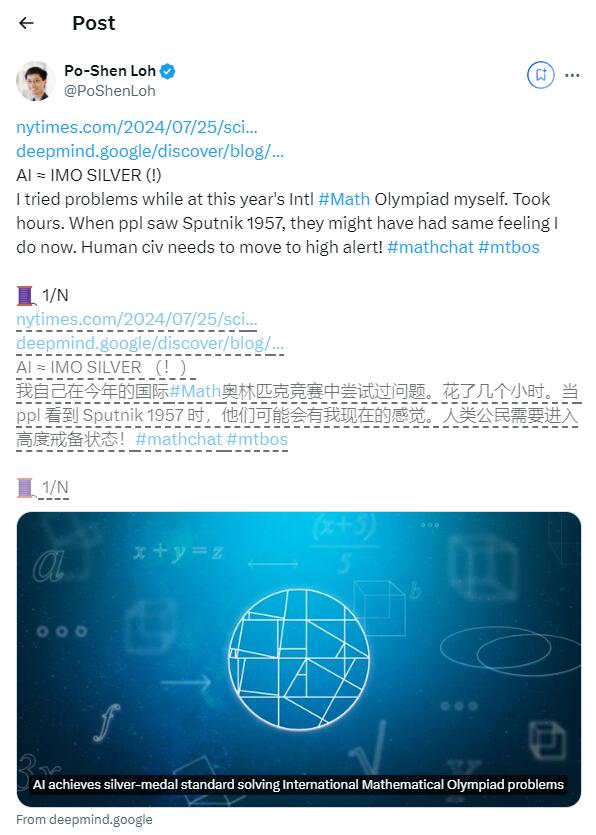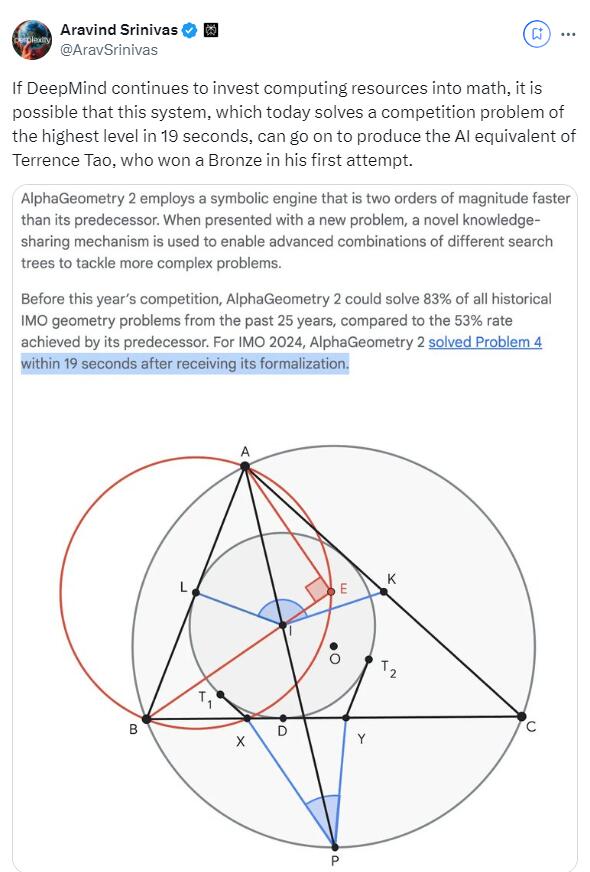Google DeepMind's AI achieved impressive results in the International Mathematical Olympiad, winning the silver medal and missing the gold medal by just one point. Its AlphaProof and AlphaGeometry2 systems answered 4 out of 6 questions correctly. Among them, AlphaGeometry2 solved a geometry question in 19 seconds, with speed and accuracy far exceeding that of top human mathematicians. This breakthrough not only shocked the mathematics community, but also attracted widespread attention in the industry. Top mathematicians such as Tao Zhexuan and Luo Boshen spoke highly of it and expressed their expectations for its future development potential.
In the temple of mathematics, Google DeepMind once again demonstrated the extraordinary capabilities of its AI. Recently, Google AI won the silver medal in the International Mathematical Olympiad (IMO). This achievement not only shocked the mathematics community, but also filled people with unlimited imagination about the future of AI.
Google's AlphaProof and AlphaGeometry2 performed impressively in the IMO2024 competition. They got 4 out of 6 questions right and missed the gold medal by just one point. What's even more amazing is that AlphaGeometry2 solved a geometry problem in just 19 seconds. Such speed and accuracy are difficult for even top human mathematicians to match.

The CEO of Perplexity AI even boldly predicted that if Google continues to delve into the field of AI mathematics, it may create an "AI Terence Tersu" in the future. Terence Tao himself is more concerned about how AI and mathematics can develop together. He believes that the progress of AI in the field of mathematics will help to automate formal mathematics and promote the progress of mathematics research.
DeepMind's research and development path this time is very smart. They rely more on reinforcement learning rather than large language models. This method inherits the spirit of AlphaGo to a certain extent. Through formal methods, AI is able to solve IMO-level geometric problems that were previously unimaginable.

Professor Luo Boshen believes that the powerful mathematical capabilities of AI pose new challenges to educational methods. The existing education structure needs to change rapidly to adapt to the needs of the AI era. He emphasized that everyone must learn to solve new problems that have never been seen before, otherwise they will not be able to keep up with the pace of AI.
Google AI's performance at IMO is not only a technological breakthrough, but also a profound revelation of human wisdom. With the continuous advancement of AI technology, we have reason to believe that future mathematics research and education will undergo earth-shaking changes. Let us look forward to how AI will continue to create miracles in the field of mathematics.
The outstanding performance of Google AI in IMO indicates that AI will have broader application prospects in the field of mathematics, and it also brings new thinking and challenges to mathematics education. This is not only a leap in AI technology, but also a milestone event in human exploration of unknown areas. In the future, the cooperation between AI and humans will promote the vigorous development of mathematics and even more disciplines.